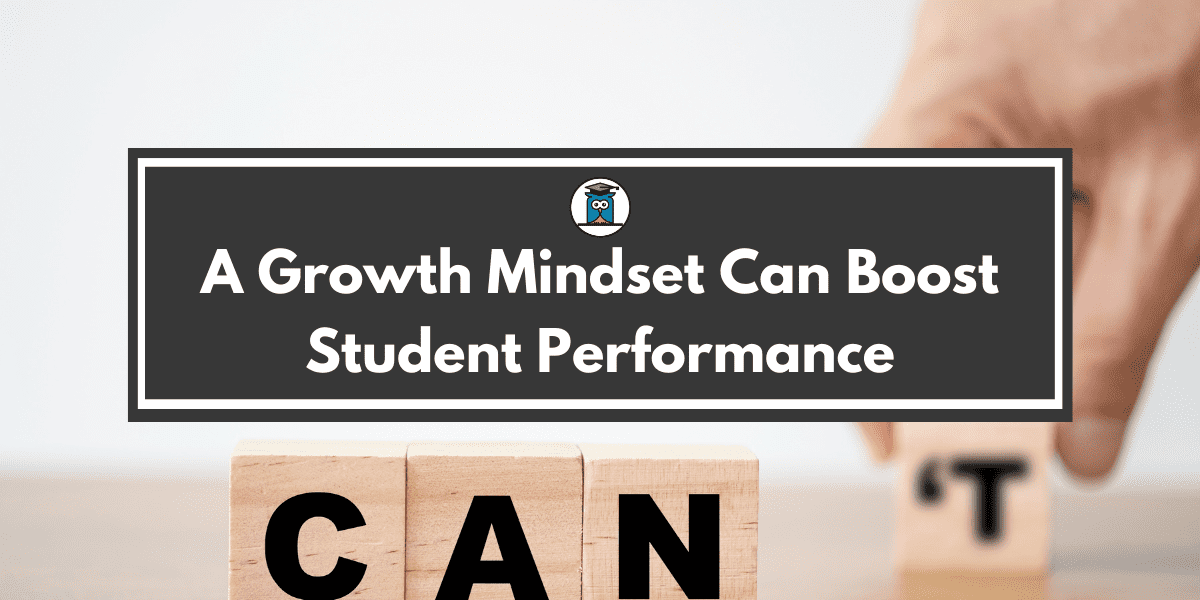When you hear “growth mindset,” you may roll your eyes and tune out. After all, you weren’t looking for the after-school special. In reality, though, this tool could change how you think about yourself, how you respond to events in your life, & your general outcomes.
As its name suggests, a growth mindset fosters growth. But that’s not all.
For years, psychologist Carol Dweck studied the ways in which our beliefs about ourselves and our abilities can impact our life trajectories. Specifically, she looked at young students and investigated why certain students are more resilient to challenges than others.
Early in her career, she recognized that children face challenges in different ways. While some tend to resist obstacles, others embrace and lean into them, spying opportunity.
Dweck focused her research on the interaction between mindset and personal development. She coined the growth mindset and investigated ways in which mindset can profoundly impact student achievement and outcomes.
To better grasp the growth mindset concept, it’s helpful to compare a growth mindset with a fixed mindset.
Growth mindset vs. fixed mindset
A fixed mindset
How you view yourself and abilities goes hand-in-hand with your mindset.
When you have a fixed mindset, you likely believe that your—and everyone else’s—success is due to natural or inherent skills/talent. In addition, you probably think about yourself as a static product, rather than an ever-changing being.
Since you feel that you already have all attributes and knowledge you’ll ever hold, you might think about effort as somewhat pointless. Additionally, you avoid challenges since they seem risky. And appearing smart to others is usually more desirable to you than gaining new knowledge.
The result? With a fixed mindset, you likely believe you cannot overcome challenges—due to your inherent lack of talent/knowledge.
A growth mindset
On the flip-side, with a growth mindset, you accept that you don’t have all the answers. But, you understand that what you don’t know, you can learn. And in turn, you recognize that you can constantly evolve. You see challenges as difficult—after all, you’re human. But you also see those challenges as learning opportunities—which will, in the long run, help you become your better self.
With a growth mindset, in the face of defeat, you recognize that you are able to get back up. Plus, you realize that you may even be able to try again and do better. Importantly, you take challenges as opportunities to learn and grow.
Keep in mind: we all hold characteristics of both a fixed and growth mindset, but tend to lean more heavily towards one or the other.
Why students need growth mindsets
As a student, you’re bound to run into challenges—some of which seem impossible to overcome.
We’ve all been there. As much as you’ve tried, the calculus assignment just seems way out of your league and you just want to call it a day and never look at it again. This is totally normal. Now here’s where it gets tricky. In this scenario, some students will bounce back from the aggravation and either try again, or seek guidance.
Meanwhile, other students may feel as though there’s nothing else they can do. And more importantly, they believe that it’s their inherent lack of knowledge and ability that led them to this “failure”. They will likely be resistant to trying to conquer the obstacle, and instead, return to their comfort zone. Then, they coast. Or become stagnant.
A growth mindset breeds resilience
The way you react to failure is a great indication of whether you carry a fixed or growth mindset.
Not only will having a fixed mindset lead to stagnation (whether it’s in school, your career, relationship), but you’ll likely find yourself feeling unhappy for more than just that fleeting moment when you’re unable to solve a problem or complete a task. And this is because, time after time, you’re attributing your failures to your inherent being—rather than lapses of knowledge or skills, which is something that all humans must face.
Meanwhile, those with a growth mindset accept their shortcomings, then strive to do better. And because they frame their weaknesses and challenges as opportunities for growth, they’re less likely to be unhappy for an extended period of time. On the contrary, they actually may feel content with having found room where they can learn, grow, and improve.
And research shows that there is a direct relationship between having a growth mindset & garnering motivation. So essentially, a growth mindset can foster resilience and motivation—and then in turn, higher achievement and academic outcomes.
To sum it up, students with fixed mindsets will shy away from challenges and as a result, resist growth and improvement. Students with growth mindsets will embrace their resiliency & put forth effort after they face failures. This results in gaining new knowledge, being higher achievements, and holding a greater sense of confidence and wellbeing.
So you can see why it’s critical for students to develop growth mindsets.
How to develop a growth mindset
Even if you tend to think with a fixed mindset, or have never considered your mindset at all, there are ways you can begin developing a growth mindset right now.
Think about your current mindset
Once you become more aware of your behaviors—as with anything—it’s easier to make changes. So next time you run into a problem or face difficulties, try to really notice and acknowledge your response. Try to look at yourself without judgment. If you notice that your response to failure is to give up, don’t get mad at yourself for it—this won’t help anyone. Instead, just notice, and then get ready to make a change.
Simply doing this will lead you to question and be more aware of your mindset & ultimately, explore how it’s affecting your growth.
Modify your perspective of failure
If you think of failure as the end-all in your journey, then you’re likely not going to grow. Whereas, if you think about failure as a gateway to learning and growth, you’ll be more capable of overcoming failure—and then eventually gaining the knowledge/skill you were pursuing.
If you’re an educator or teacher, you can be the model of a growth mindset for your students. That is, be sure to add modeling and discussing a growth mindset into your repertoire of classroom management priorities.
Embrace “yet”
Mindset is all about training your brain. By introducing one simple word into your vocabulary, then using it more and more, you’ll allow yourself to move past a fixed way of thinking, and into a more encouraging one.
When you catch yourself thinking something like, `I’m not good at fractions’, add “yet” to the end of that sentence. Over time, this will come more naturally. And eventually, you’ll provide yourself with the reassurance that progress and change is possible.
By continually using “yet”, you encourage yourself to keep going—to keep going to office hours and putting effort into your math homework.
And eventually, you may find that you’ve made great gains in mastering fractions!
Learn about brain malleability
One of the most logical ways to embrace and recognize the brain’s ability to change is to actually learn the facts—doing so will enable you to internalize the reality of the situation, and apply it to your growth.
A meta-analysis on ten different studies found that teaching students about neuroplasticity induces a growth mindset—and this, in turn, leads to higher motivation.
Remember reading about Thomas the Tank Engine? His mantra, ‘I think I can, I think I can…’ is infamous for good reason. The little jig can help us remember to get back on our feet and learn from our failures and challenges.
P.S. Just keep swimming, just keep swimming!
Author: Lydia Schapiro










